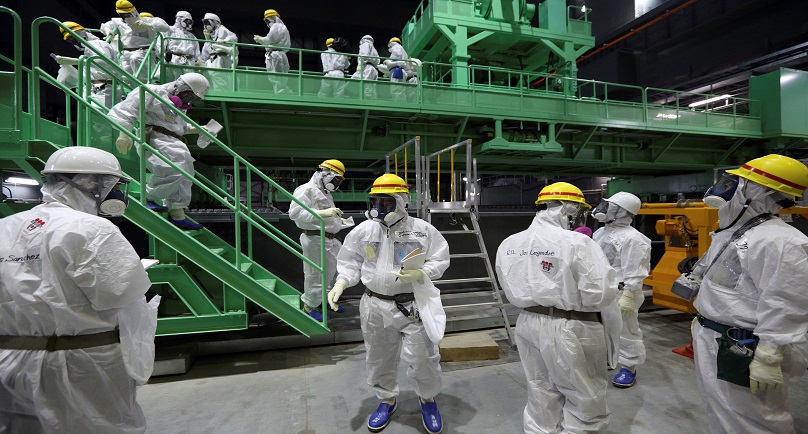![]()
By Aaron Sheldrick
TOKYO (Reuters) – Japan will cut reliance on nuclear power when it releases an updated energy plan as early as next year, reflecting public opposition and a recognition that current policy is unrealistic, three sources familiar with official thinking told Reuters.
The move is expected to boost the country’s use of renewable energy, but will also likely cement its drive towards cheaper coal-fired generation following the 2011 Fukushima nuclear crisis and the shutdown of reactors.
Public resistance to nuclear has remained strong in Japan, and a target by the pro-nuclear industry ministry for nuclear to provide about a fifth of the country’s electricity provoked widespread criticism when it was finalized in 2015.
At the same time, only two of the country’s 42 reactors are currently operating following safety shutdowns, and the industry faces a raft of constraints including aging units and legal challenges.
A target of 10-15 percent for nuclear by 2030 has been mooted, one of the sources said, down from 20-22 percent under current policy.
Cutting nuclear will likely mean higher targets for renewable energy, said Tomas Kaberger, energy and environment professor at Chalmers University of Technology in Sweden, who as chairman of the Renewable Energy Institute in Tokyo is a regular visitor to Japan.
“There is a more realistic attitude toward nuclear power taking hold in Japan so it would not surprise me to see a significantly larger role for renewable energy in the next energy plan,” Kaberger told Reuters while in Tokyo earlier this week.
The rethink on nuclear follows a recent court decision that forced the shutdown of one reactor.
But renewable energy’s improved competitiveness and the increasing technical challenges of restarting aging and long idled reactors are likely to have been a factor, said Kaberger, who is also on the board of state-owned Swedish utility Vattenfall.
Prior to the deadly 2011 earthquake and tsunami that caused meltdowns at the Fukushima Daiichi plant, nuclear supplied about 30 percent of Japan’s electricity needs and an earlier energy plan envisaged increasing that to about 50 percent.
An official involved in forming policy at the Ministry of Economy Trade and Industry said the timing or schedule for the next release of the basic energy plan or preferred energy mix had not been decided.
Asked if the ministry was considering lowering the target for nuclear, the official said there was no change in stance under current policy.
COAL USE TO RISE
Reducing the target for nuclear is likely to support Japan’s controversial push into coal for power generation, with more than 40 new stations using the dirtiest fuel planned in the coming years, putting its emissions targets at risk.
It may also mean more reliance on liquefied natural gas (LNG) by the world’s biggest importer of the fuel. LNG use surged in the aftermath of Fukushima and prices are expected to remain low for some time amid plentiful supplies, although it is still pricier than coal.
Japan has been inching back to nuclear energy, turning on its first reactor in mid-August after a two-year blackout, despite opinion polls showing consistent opposition.
Any reductions to nuclear targets are likely to be resisted by the powerful utilities, although some have already acted to close aging plants, with six units slated for decommissioning in the past year.
A Reuters analysis last year showed that of the reactors still in shutdown, just seven are likely to be turned on in the next few years.
(Additional reporting by Osamu Tsukimori; Editing by Richard Pullin)
Copyright 2016 Thomson Reuters. Click for Restrictions.


